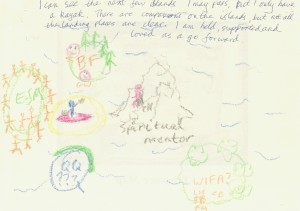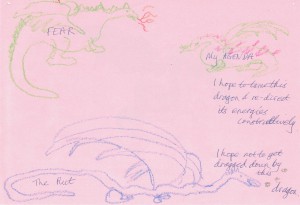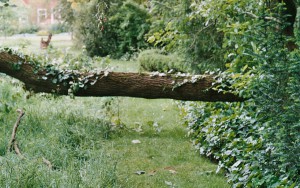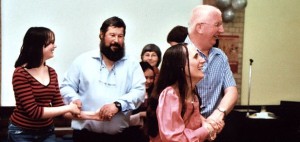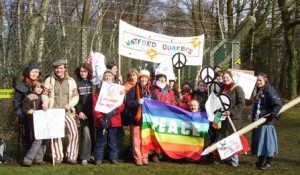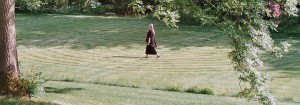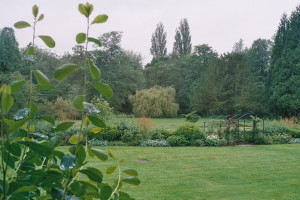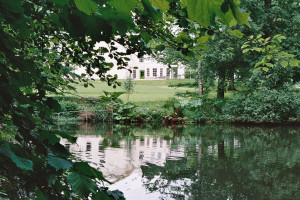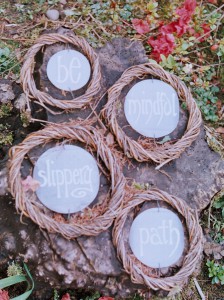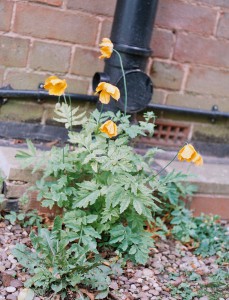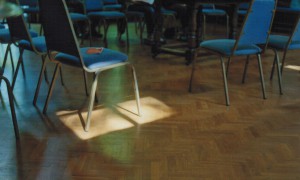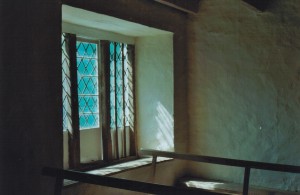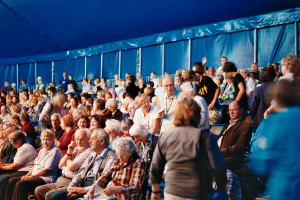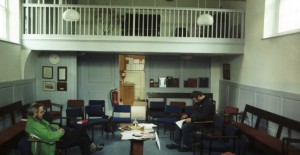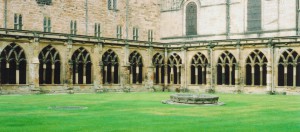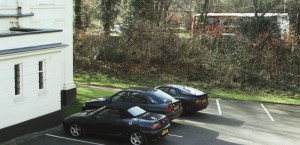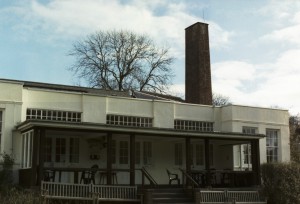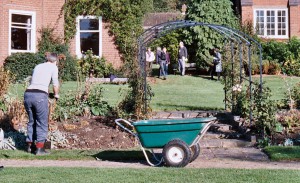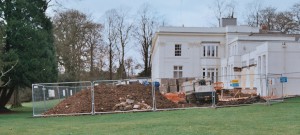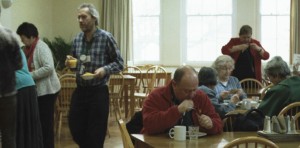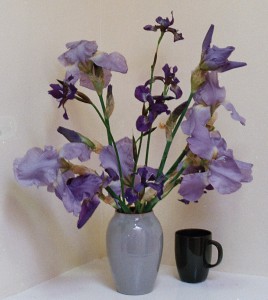X marks the spot on the treasure map where the treasure lays hidden.
As I finished Equipping for Ministry (almost four years ago) it was suggested that I might look to the future and write my own story, which might include a treasure map, shipmates, a tool kit, treasure, dragons, and possibly other features too.
I identified my treasure as the Love of God, which is here and now, and doesn’t actually need seeking for. Someone else in the group said, when we shared our stories, that the treasure was for sharing with everybody. I liked that idea and it fitted the treasure I was identifying.
I drew a map too, and the islands that I identified, where I might land and meet friendly people (Becoming Friends, Watford Interfaith Association, Quaker Quest), have been visited.
I was quite fascinated by the dragons I drew, that lurked around the map (as they do on some antiquarian maps). I named them ‘fear’, ‘my agenda’ and ‘the rut’. I hoped to tame ‘my agenda’ and re-direct its energies constructively. I hoped not to get dragged down by ‘the rut’.
Now I come to a place in my journey where the map has run out. I’m not sure whether my path is blocked by a log I might sit and rest on, and perhaps, in due course, climb over to continue my journey. Or by red & white danger warning tape saying stop, here, now, do not continue this way. I’m seeing gentle countryside around me, rather than seas and islands to explore. A time to take stock and review. Perhaps a time ‘to make your home a place of loving friendship and enjoyment, where all who live or visit may find the peace and refreshment of God’s presence.’ (A&Q 26), to wait, to let people come to me, rather than rush around going to this meeting and that meeting.
What does your map look like? Do you see adventures? Dragons? Shipmates? Treasure?

